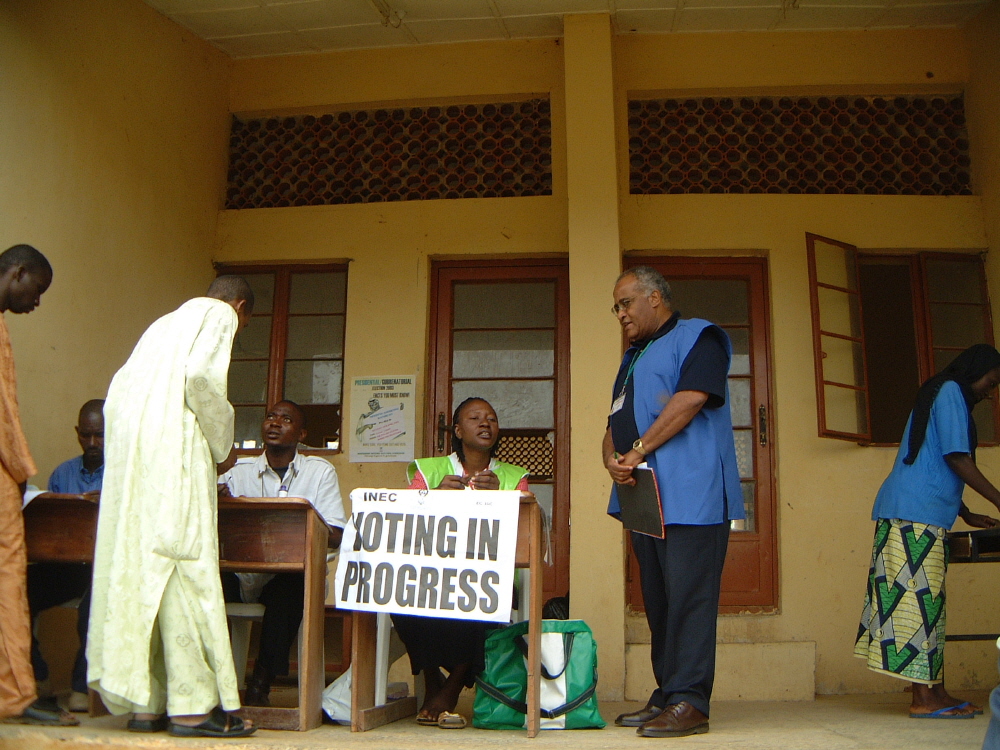“Active citizenry will bring productive governance”
February 4 Nigeria’s citizens have been increasingly active at the national level since the 2011 election, but Tayo Elegbede, 24, a Commonwealth Correspondent from Nigeria, argues that active citizenry is needed at the local level of government, where it can have the most social and political impact.
Nigeria’s citizens have been increasingly active at the national level since the 2011 election, but Tayo Elegbede, 24, a Commonwealth Correspondent from Nigeria, argues that active citizenry is needed at the local level of government, where it can have the most social and political impact.
Individuals make up a society. The government leads, but for smooth sailing the people must feel and follow that constituted authority.
Yet in 1999 the Commonwealth Foundation noted a “growing crisis of legitimacy” facing institutions and the citizens whose lives they affect.
Corruption and lack of responsiveness were cited as problems.
Active citizenship advocates that members of a community have roles and responsibilities in society, even though they may not have specific governing roles. The ideology posits that an active citizenry will bring about productive governance at the local, state, national or international level.
But with a population of more than 160 million, Nigeria has yet to experience a robust and dynamic citizens’ involvement in crucial areas of its social life.
Who is an active citizen? There is no universally accepted definition, but there is general agreement that active citizens get involved in public life and affairs, particularly at the grass-root level. They tackle problems, bring about change or resist unwanted change.
They develop skills, knowledge and understanding to make informed decisions about their communities and workplaces with the aim of improving the quality of life in their society. In all, they constructively engage society for the betterment of lives.
Since the 2011 general elections in Nigeria, citizens’ participation has assumed a more impressive dimension at the national level. Citizens ask questions and examine answers about policies that affect their existence. This was demonstrated in what analysts call the “Nigerian Spring”, a protest that grounded economic activity in Africa’s largest oil producing nation in January 2012.
While the passion to engage the government at the national level has increased recently, there is still need to assess the level of citizens’ participation at the grass-root level.
Nigeria has a three-tier government structure that makes local government the closest to the people. It should have the most social and political impact on the people. Unfortunately, the situation leaves much to be desired.
Whilst local government authorities make no concerted effort to create a working connection between the people and itself, the people themselves find no reason to engage the local system. Rather they find solace in being their own local authority, heaping cosmic pressure on the national and state government.
Apparently, the dearth of active citizenship at the grassroots level is the hallmark of the many woes Nigerian society is experiencing today.
Terrorism and insecurity, for example, have been linked to unchecked youth unemployment and high illiteracy levels that result from weak local engagement and empowerment.
If societies must function well, citizens must engage well. A bad citizenry elects a bad authority, which will in turn govern in a bad manner. Citizens’ participation brings about citizen power.
Our concentration on national affairs is so extensive that we don’t know what malfeasance is being perpetuated right under our nostrils in the name of local government administration.
Let’s face it…Do YOU know your ward councillor? What is the name of your Local Government Chairman? Where is your Council located? This is a great way to check our level of participation at the local level.
It is golden and divine to speak up when things are going wrong instead of when things are at already a nonredeemable stage. Nigerians at all levels must begin to speak up more loudly on issues, starting from the local government level. Social media provides anyone the platform to express his or her thoughts on diverse issues. Let’s drive our society to our desired destination through constructive criticism and enlightened engagement.
Other indicators for active citizenship include demonstrated interest in socio-economic and political matters, volunteering with organisations and networks, organising activities for the community, voting in elections, and participation in political parties, interests groups, peaceful protest, and public debate.
Societal successes are not achieved by the sole effort of the constituted authority but by the collaborative effort of the citizens and the government.
Nigerians, let us rise with knowledge and sincerity to play our roles and responsibilities as active citizens of this great country.
Tayo Elegbede JET, Journalist and Mediapreneur.
Twitter-@tayojet1
Photo: © Commonwealth Secretariat
…………………………………………………………………………………………………………………
About me:
I am a young broadcast journalist, radio presenter, writer, public relations practitioner and social entrepreneur with a passion for all-round human development. My core philosophies in life include honesty and integrity, open-mindedness, responsibility and accountability.
…………………………………………………………………………………………………………………
Opinions expressed in this article are those of the author and do not necessarily represent the views of the Commonwealth Youth Programme. Articles are published in a spirit of dialogue, respect and understanding. If you disagree, why not submit a response.
To learn more about becoming a Commonwealth Correspondent please visit: http://www.yourcommonwealth.org/submit-articles/commonwealthcorrespondents/




